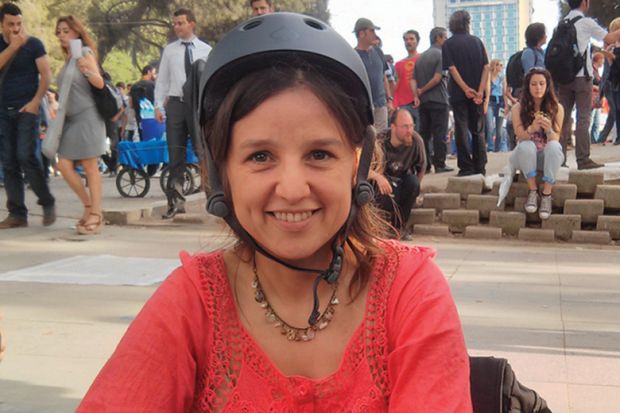What sort of books inspired you as a child?
Their very existence inspired me! They were a window into a big, amazing world and I wanted to go and discover as much of it as I could. However, growing up in Turkey meant that I had a limited selection. I read probably every encyclopedia translated into Turkish. I read almost all children’s classics. When I say read, I mean I reread and reread them – books were always in short supply. I read encyclopedias cover to cover, and then reread them. I read comic books, critical-realist Turkish novels, children’s magazines, political essays…Back then, shopkeepers would make paper bags out of old newspapers. I’d unglue them, lay them out, and read them, too. Learning English and discovering both a much greater supply, and science fiction, was a joy.
Which books spurred your engagement with the movements you describe in Twitter and Tear Gas: The Power and Fragility of Networked Protest?
The singular book that helped change my life was Edita Morris’ The Flowers of Hiroshima. As a child, I was fascinated by physics and maths, and I was good at it. I wanted to be a scientist, probably a physicist. When I was 10 or 11, I chanced upon her novel: a delicate but devastating story of an American who goes to Japan and meets two sisters who are atom bomb survivors, and he falls in love with one. A beautiful love story almost blooms, but the shadow of the bomb smothers the life and the love they could have. The book was unsparing in how it approached both Japanese and American society, too. There was a second volume, Seeds of Hiroshima, but I did not have the money to buy it. I literally scraped pennies together – it ended up being a heavy bag – and I went to the bookstore. I was crying so hard that I could not explain that I wanted to buy the book and could not really afford it. The storekeeper finally understood what I was saying and gave me the book – he did not take what money I had. I read those two books multiple times and changed my life plans. I vowed that I would try to make sure whatever talent I had would not be mobilised for cruelty and evil. If I could, I would do the opposite. Those books and a visit to a concentration camp shortly after (which also shook me very deeply) made me decide to seek out and engage in protest movements. Being a conformist seemed too dangerous for one’s soul in a cruel world.
Which studies of the Arab Spring would you recommend to non-specialists?
There are many! Thanassis Cambanis’ Once Upon A Revolution: An Egyptian Story and Marc Lynch’s The Arab Uprising: The Unfinished Revolutions of the New Middle East are particularly good.
What is the last book you gave as a gift, and to whom?
The Math Book: From Pythagoras to the 57th Dimension, 250 Milestones in the History of Mathematics by Clifford A. Pickover, as a holiday gift for a first-grader. I still love maths books, and this seemed like a great combination.
Zeynep Tufekci is associate professor in the School of Information and Library Science, University of North Carolina, a faculty associate at the Berkman Klein Center for Internet and Society, Harvard University, and author of Twitter and Tear Gas: The Power and Fragility of Networked Protest (Yale University Press).
